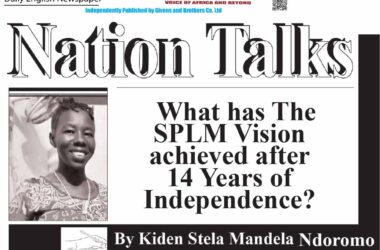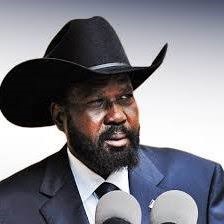By William Madouk
The constitution-making process is expected to produce fiscal federal-style system of government.
The concept of fiscal federalism has increasingly become popular in South Sudan throughout the country as a mean to address various challenges of state resource management, promotion of local development and assurance of effective service delivery.
This prompted the National Constitutional Review Commission (NCRC) to hold 4-day workshop for its members and secretariat to explore and identify type of federalism that suits South Sudan.
Mr. Lasuba L. Wongo, the minister of federal Affairs, hinted that the structure of fiscal federalism is key for state reconstruction, economic reforms, increasing domestic revenue and the prevision of services.
He cited that South Sudanese people “[we] are positioned at this particular historic moment to develop our permanent constitution.”
“In this workshop we are focusing on discussing fiscal federalism in various part of the countries with their experiences being brought together to the people of South Sudan to make a better choice of the best federal system in this country,” Wongo added.
Mr. Wongo explained that the National Dialogue conducted in 2016 – 2020 show the public views on the root causes of the conflicts that hampered development and strongly optional federal system.
“The purpose of implementing a federal system of the government, is specifically to ensure that there is lasting peace and stability in the country. secondly, is to ensure a unity in diversity,” he noted.
To him, federal system would establish a practice of good governance, rule of law, respect of fundamental human rights, transparency and accountability in usage of public funds and devolution of powers to lower level.
In addition, the Chair of National Constitutional Review Commission, Dr. Riang Yer Zuor said “fiscal federalism is not new to the people of South Sudan its enshrined in the document.”
He said they would embark on nationwide public a discourse to sensitize them on elements on federalism incorporated in to permanent constitution to effect equitable resource sharing and development.
“I would like to inform you that the commission in collaboration with partners is planning to launch the civic education and public consultation campaign before the end of this year,” he said.
Zuor added “This will be one-day event to inform the people of South Sudan on what to expect.”
Dr. Kathrin Maria, managing director Max Plank foundation stated that workshop was for NCRC members to allow them fulfil their role and mandate “and involve toward crucial process in the making of permanent constitution in South Sudan.”
The four-day workshop on fiscal federalism is organized by National Conditional Review Commission and co-supported by UN Mission in South Sudan and the Max Planck Foundation.
The occasion draws together both the national and international experts to address the concept of fiscal federalism and which type of federalism is best for South Sudan as a nation.
South Sudan, through a decentralized government with some elements of federalism has most of the powers concentrated at the central level which will be contrary to the federal system.
A week ago, the fourth high-level forum summit to shed light on fiscal devolution and revenue management in the country commenced, and was graced by Vice President Dr. James Wani Igga.
This came amid clamor by the Council of States as oil producing states and communities cry foul of lack of the implementation of 5 per cent oil share.
State government officials and experts lamented of power being controlled by the national government and urged more power devolution to states and administrative areas.
As the curtain falls on high-level forum summit on fiscal devolution and revenue management, the participants adopted 33 recommendations that would address power devolution and wealth-sharing.




